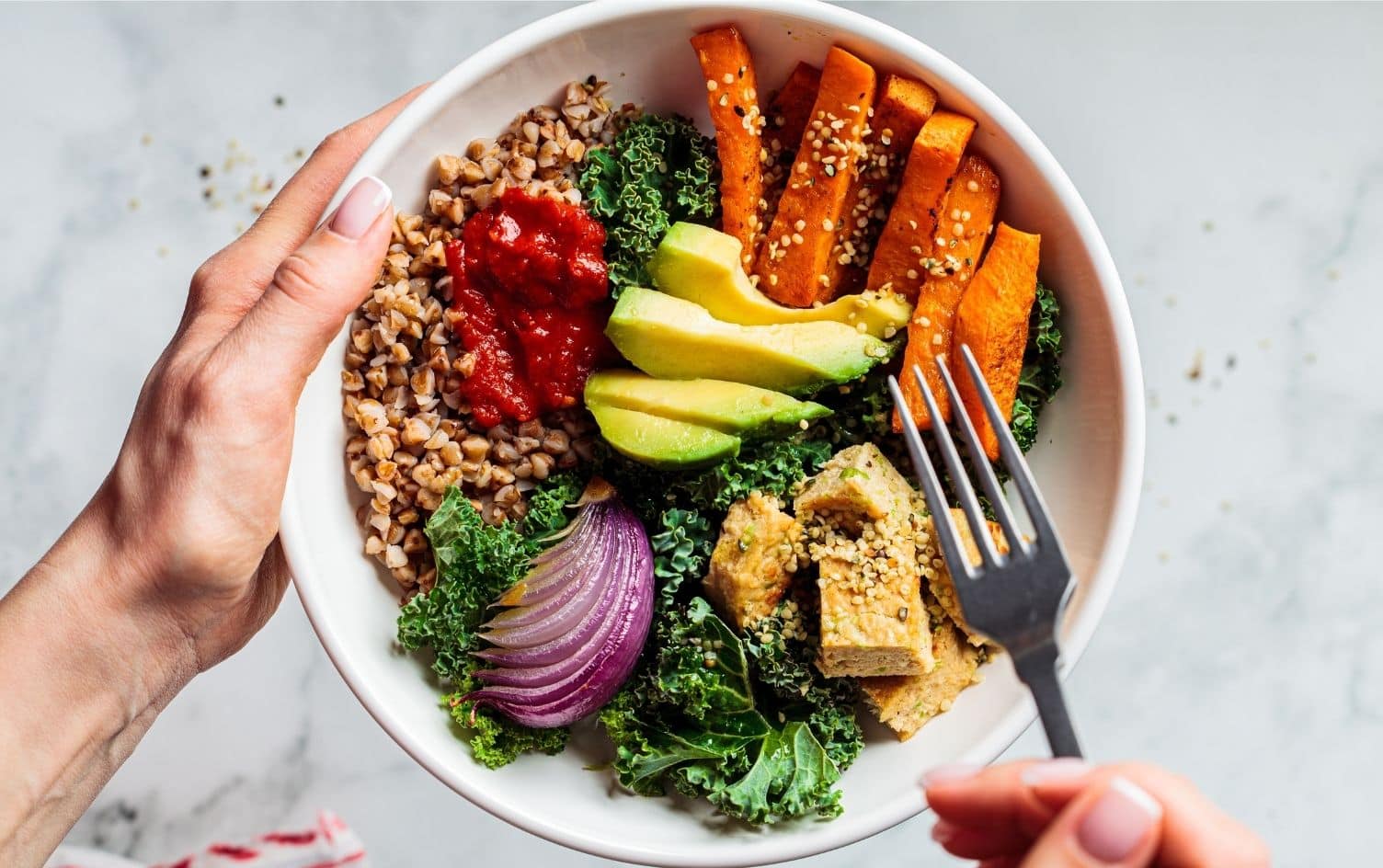If you’re trying to lose weight, you’ve likely heard that going flexitarian (eating less meat) or switching to a vegetarian or vegan diet could help.
After all, research shows people who follow plant-powered diets tend to weigh less. But, if you can’t imagine a sandwich or dinner without meat at the center, this could be a tough transition. And whether you opt for meat or plant-based sources, it’s important to continue getting enough protein to feel satisfied at every meal and maintain muscle throughout your weight-loss journey.
So should you say goodbye to steak, meatballs and chicken to lose weight? We asked RDs to make the case for weight loss with or without meat on your plate.


Reducing your intake of red meat can help you lose weight. Numerous studies show eating less meat has been linked to lower body mass index (BMI) and body fat, per an article published in the journal Nutrients.

If you have meat at every meal, I’d recommend eating less because there’s a lot of fat in animal protein sources, which can increase your overall calorie intake. If you eat meat about 3–4 times a week — the general limit for overall health — more cuts won’t help. There are likely other factors holding you back like not eating balanced, filling meals.

If you’re used to eating meat, suddenly making it “off-limits” for weight loss can make your job harder than necessary. For instance, 4 ounces of lean ground beef provides 24 grams of protein. To get the same amount from a plant-based protein like quinoa, you would have to eat 3 cups of it — which clocks in at four times the calories, not to mention considerably more carbohydrates.
THE CASE FOR EATING LESS MEAT TO LOSE WEIGHT

Studies show a plant-based diet rich in high-fiber and high-protein foods is healthier, cheaper and more effective for weight loss than a meat eater’s diet. Fiber found in beans and vegetables helps slow digestion and makes you feel fuller longer so you’re satisfied with fewer calories. Meat has no fiber and red meat, in particular, is high in saturated fat; Eating too much of it can also lead to other health problems, including a shorter lifespan, high blood pressure, heart disease and cancer.
THE CASE AGAINST EATING LESS MEAT TO LOSE WEIGHT

You don’t need to cut out meat completely to reap the weight-loss benefits of a plant-based diet. Decreasing your red meat intake to about 3–4 times a week max and replacing the rest with poultry or plant-based proteins could help you reduce your overall fat and calorie intake. You can also tip the scale in your favor with other strategies like filling half of your plate with low-calorie, nutrient-dense vegetables; including satiating protein in every snack; and making small, sustainable changes rather than subjecting yourself to restrictive dieting.

When people transition to a plant-based diet for weight loss, they tend to overhaul their usual diet, which can be a drastic lifestyle change including more time grocery shopping and prepping meals. Not everyone has the time or skills to do that. Also: Just because something is vegan, vegetarian or plant-based doesn’t mean it’s healthy or a magic bullet for weight loss. Balance in your diet, including lean, satiating forms of animal protein can help you lose weight without cutting meat.
THE BOTTOM LINE
“The bottom line is that you should consume a variety of protein sources in order to help you reach your weight-loss goals,” says Brikho. While experts are split on the ideal amount of meat to include in your diet to slim down, they agree including high-quality protein in each snack and meal is essential. Along with a slight calorie deficit, lean meats like chicken and turkey, as well as plant-based sources like tofu, quinoa and lentils can help you feel fuller longer and hit your health goals. No matter your meat intake, studies suggest 25–30 grams of protein per meal is the sweet spot for sustainable weight loss and maintenance.
Ready to take the next step? Unlock MyFitnessPal Premium to access custom goal settings, quick-log recipes, and guided plans from a registered dietitian. Premium users are 65% more likely to reach their weight loss goals!




